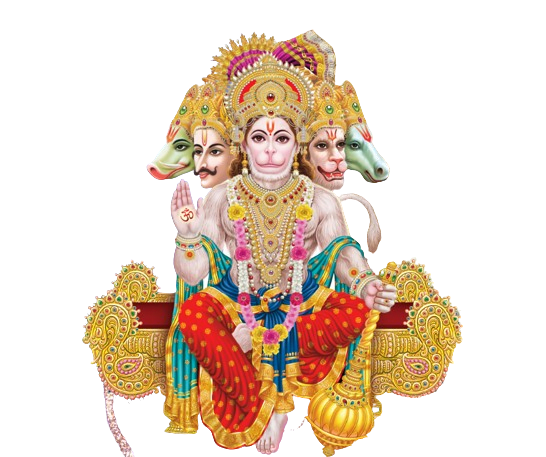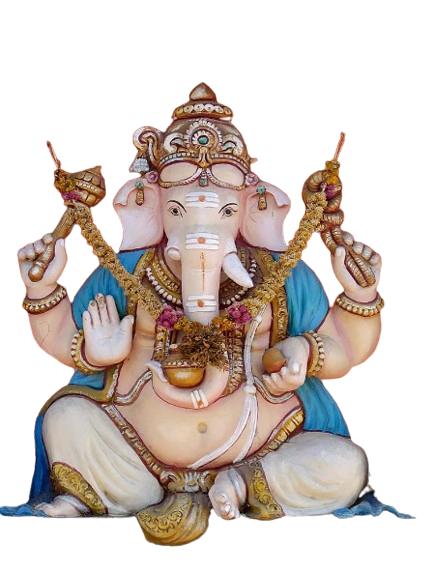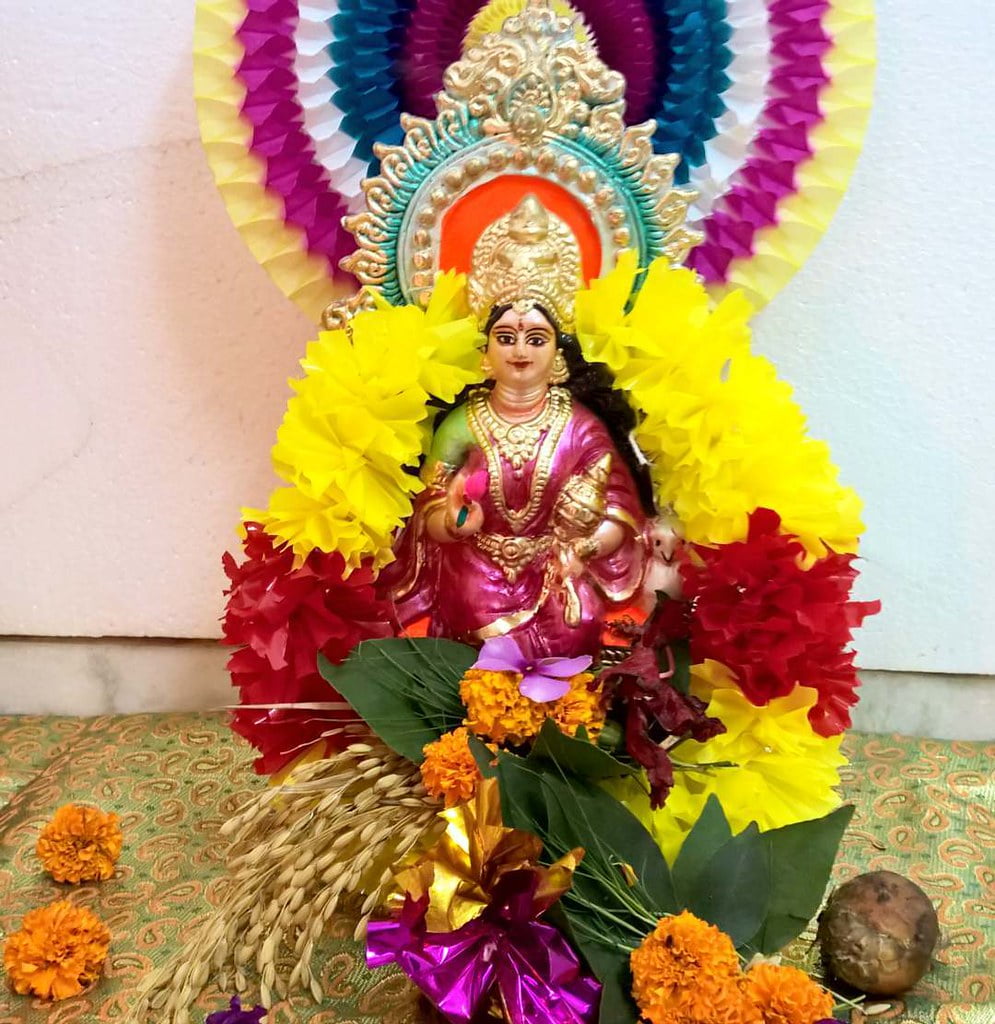Unique Japanese
Baby Names
"Discover Uniqueness: Embrace 'Unique Japanese Baby Names' Infused with Elegance and Meaningful Tradition!"
“Welcome to a world of timeless elegance and profound significance! Our curated collection of ‘Unique Japanese Baby Names’ invites you into the exquisite tapestry of Japanese culture and heritage. Each name within this treasury resonates with a distinctive charm, carrying centuries-old traditions, and embodying profound meanings steeped in the richness of Japan’s history. Explore this curated selection that blends grace, uniqueness, and cultural depth, offering names that reflect the serene beauty and symbolic essence deeply ingrained in Japanese tradition. Join us on this captivating journey to discover names that encapsulate the essence of Japanese heritage, offering a gateway to bestow upon your child a name that is both unique and profoundly meaningful.”
Unique Japanese Baby Names
Girl Name of the Week
Riko

Meaning: “Riko” (リコ) can be represented by different combinations of characters in Japanese, each carrying its own significance. Common interpretations include “child of truth,” “jasmine child,” or “clever child.”
Popularity: “Riko” is a moderately popular name in Japan. Its soft yet distinctive sound contributes to its appeal among parents seeking names that evoke purity, intelligence, or gracefulness.
Cultural Significance: The name “Riko” might be associated with attributes like purity, honesty, intelligence, or elegance, reflecting a child’s admirable qualities.
Boy Name of the Week
Riku

Meaning: In Japanese, “Riku” (リク) can have multiple meanings depending on the characters used to write it. It can represent different combinations of characters that denote various qualities such as “land,” “shore,” “strength,” or “intelligence.”
Popularity: “Riku” is a relatively popular name in Japan. Its simple yet strong sound contributes to its appeal among parents seeking names that evoke strength or nature-related imagery.
Cultural Significance: The name “Riku” might be associated with attributes like resilience, inner strength, and a connection to the earth or land, reflecting harmony with nature.
Unique Japanese Baby Names
Top Baby Names of 2024
Welcome, parents-to-be, to your one-stop shop for the hottest baby names of 2024! We’ve scoured the trend reports, delved into cultural influences, and even peeked at celebrity bundles to curate a list of 200 captivating names brimming with meaning and style.
Unique Japanese Baby Boy Names
- Haruki (春樹) – Meaning “spring” (春) and “tree” (樹), of Japanese origin.
- Ren (蓮) – Means “lotus” in Japanese, representing purity and beauty.
- Ryota (涼太) – Combination of “cool” (涼) and “thick” (太), a popular Japanese name.
- Kaito (海斗) – Signifies “ocean” (海) and “big dipper” (斗), denoting vastness and strength.
- Haru (陽) – Means “sunlight” or “sun” in Japanese, symbolizing warmth and light.
- Kenji (健次) – Combination of “strong” (健) and “next” (次), representing a healthy and wise individual.
- Akihiro (明宏) – Signifies “bright” (明) and “vast” (宏), highlighting a radiant and expansive personality.
- Daichi (大地) – Means “great” (大) and “earth” (地), symbolizing greatness and connection to the land.
- Yuki (雪) – Signifies “snow” in Japanese, representing purity and tranquility.
- Takumi (匠) – Means “artisan” or “master craftsman,” denoting skill and expertise.
- Renjiro (蓮次郎) – Combines “lotus” (蓮), “next” (次), and “son” (郎), symbolizing the next generation with purity.
- Sora (空) – Means “sky” in Japanese, reflecting openness and limitless possibilities.
- Hikaru (光) – Signifies “light” or “radiance,” representing brightness and illumination.
- Shinji (真二) – Means “true” (真) and “second” (二), symbolizing integrity and a steady nature.
- Yuta (裕太) – Combination of “abundant” (裕) and “thick” (太), reflecting a prosperous and strong individual.
- Kazuki (一輝) – Signifies “one” (一) and “radiance” (輝), symbolizing a shining and unique presence.
- Tsubasa (翼) – Means “wings” in Japanese, representing freedom and aspirations.
- Haruto (陽翔) – Combination of “sunlight” (陽) and “soar” (翔), denoting a soaring spirit under the sun.
- Hayato (隼人) – Signifies “falcon” (隼) and “person” (人), symbolizing speed and agility.
- Asahi (旭) – Means “morning sun,” symbolizing hope and new beginnings.
- Riku (陸) – Signifies “land” or “shore,” representing stability and groundedness.
- Haruki (遥輝) – Combination of “distant” (遥) and “radiance” (輝), symbolizing a shining presence from afar.
- Shota (翔太) – Means “soar” (翔) and “thick” (太), signifying a strong and ambitious individual.
- Rei (零) – Signifies “zero” or “cool” in Japanese, representing purity and serenity.
- Masato (昌人) – Means “righteous” (昌) and “person” (人), denoting an upright and honorable individual.
- Haruto (晴斗) – Combination of “clear weather” (晴) and “big dipper” (斗), symbolizing a bright and auspicious future.
- Satoshi (聡) – Signifies “wise” or “intelligent,” representing a knowledgeable and perceptive person.
- Kazuma (一馬) – Means “one” (一) and “horse” (馬), symbolizing strength and vitality.
- Itsuki (樹) – Signifies “tree,” representing growth and strength.
- Takeru (武) – Means “warrior” or “valiant,” symbolizing bravery and strength.
- Hiroto (大翔) – Combination of “big” (大) and “soar” (翔), denoting a big-hearted person with high aspirations.
- Haruki (陽輝) – Combination of “sunlight” (陽) and “radiance” (輝), symbolizing a shining presence under the sun.
- Renzo (蓮三) – Combines “lotus” (蓮) and “three” (三), symbolizing the purity and significance of the number three.
- Seiji (誠司) – Means “sincere” (誠) and “administrator” (司), denoting an honest and trustworthy leader.
- Yusuke (裕介) – Signifies “abundant” (裕) and “assist” (介), reflecting a helpful and prosperous nature.
- Sosuke (蒼介) – Means “blue” or “vast” (蒼) and “assist” (介), symbolizing a broad-minded and supportive individual.
- Yuto (悠斗) – Combination of “permanence” (悠) and “big dipper” (斗), denoting a serene and ambitious spirit.
- Koki (光輝) – Signifies “radiance” (光) and “shine” (輝), symbolizing a bright and shining personality.
- Tomoaki (友明) – Means “friend” (友) and “bright” (明), denoting a friendly and optimistic nature.
- Ryusei (流星) – Signifies “shooting star” in Japanese, representing brilliance and uniqueness.
- Hinata (日向) – Means “sunny place,” symbolizing warmth and positivity.
- Akihiko (明彦) – Signifies “bright” (明) and “boy” (彦), highlighting a bright and courageous young man.
- Renji (連治) – Combines “connect” (連) and “govern” (治), symbolizing the ability to unite and lead.
- Yusaku (勇作) – Means “courageous” (勇) and “work” (作), denoting a hardworking and brave individual.
- Yoshiki (良樹) – Signifies “good” (良) and “tree” (樹), symbolizing a noble and strong character.
- Akiyoshi (明良) – Means “bright” (明) and “good” (良), denoting a virtuous and radiant personality.
- Toshiro (俊郎) – Signifies “intelligent” or “talented” (俊) and “son” (郎), highlighting a talented and capable individual.
- Kazuki (和希) – Means “harmony” (和) and “hope” (希), symbolizing a hopeful and harmonious spirit.
- Hiroshi (浩) – Signifies “prosperous” or “wide” (浩), representing a broad-minded and successful person.
- Renpei (蓮平) – Combination of “lotus” (蓮) and “peace” (平), symbolizing peace and purity.
- Kotaro (虎太郎) – Means “tiger” (虎), “thick” (太), and “son” (郎), denoting strength and vitality.
- Yukihiro (幸弘) – Signifies “happiness” (幸) and “vast” (弘), highlighting a joyful and expansive nature.
- Shinichi (真一) – Means “true” (真) and “one” (一), denoting a genuine and unique individual.
- Satoru (悟) – Signifies “enlightenment” or “understanding,” representing wisdom and insight.
- Kazuhiro (一浩) – Means “one” (一) and “prosperous” (浩), symbolizing a successful and singular person.
- Haruki (春樹) – Combination of “spring” (春) and “tree” (樹), symbolizing vitality and growth.
- Naoki (直樹) – Signifies “honest” or “straight” (直) and “tree” (樹), denoting an upright and strong-willed individual.
- Taiga (大河) – Means “big” (大) and “river” (河), symbolizing strength and resilience like a great river.
- Hideki (英樹) – Signifies “excellent” or “splendid” (英) and “tree” (樹), denoting an outstanding and resilient nature.
- Ryoma (龍馬) – Means “dragon” (龍) and “horse” (馬), symbolizing power and strength.
- Takashi (隆) – Signifies “prosperous” or “noble,” representing success and dignity.
- Kenzo (健三) – Means “strong” (健) and “three” (三), symbolizing strength and significance.
- Soma (宗馬) – Signifies “religion” or “origin” (宗) and “horse” (馬), denoting ancestral roots and strength.
- Ryuki (龍輝) – Combination of “dragon” (龍) and “radiance” (輝), symbolizing a shining and powerful presence.
- Tetsuya (哲也) – Means “philosophy” or “wisdom” (哲) and “to be” (也), representing a thoughtful and knowledgeable person.
- Jin (仁) – Signifies “benevolence” or “compassion,” denoting kindness and empathy.
- Kaito (凱斗) – Combination of “victory” (凱) and “big dipper” (斗), symbolizing a triumphant and ambitious nature.
- Riku (陸) – Means “land” or “shore,” representing stability and grounding.
- Taichi (太一) – Signifies “big” (太) and “one” (一), denoting a significant and unique individual.
- Haruto (晴人) – Combination of “clear weather” (晴) and “person” (人), symbolizing a bright and cheerful personality.
- Satoshi (聡) – Signifies “wise” or “intelligent,” representing a knowledgeable and perceptive person.
- Ryota (遼太) – Means “distant” (遼) and “thick” (太), denoting a broad-minded and strong individual.
- Kosuke (康介) – Signifies “healthy” or “peaceful” (康) and “assist” (介), representing a helpful and peaceful nature.
- Takuma (拓磨) – Means “expand” or “pioneer” (拓) and “grindstone” (磨), symbolizing someone who breaks new ground.
- Hiroki (宏樹) – Signifies “vast” (宏) and “tree” (樹), representing a person with a broad and strong character.
- Ryohei (涼平) – Combination of “cool” (涼) and “peace” (平), symbolizing a calm and peaceful personality.
- Yuma (勇馬) – Means “courageous” (勇) and “horse” (馬), symbolizing bravery and strength.
- Kazuhiko (和彦) – Signifies “harmony” (和) and “boy” (彦), denoting a harmonious and courageous young man.
- Kotaro (虎太郎) – Means “tiger” (虎), “thick” (太), and “son” (郎), denoting strength and vitality.
- Yuto (勇翔) – Combination of “courageous” (勇) and “soar” (翔), symbolizing bravery and a soaring spirit.
- Yuto (優斗) – Means “gentle” or “superior” (優) and “big dipper” (斗), symbolizing superiority and ambition.
- Kenshin (謙信) – Signifies “modesty” (謙) and “trust” (信), denoting a trustworthy and humble individual.
- Hayato (颯人) – Means “sudden” or “brisk” (颯) and “person” (人), representing a quick and agile individual.
- Haruki (春樹): Meaning “spring” and “tree”; Japanese origin.
- Ryota (涼太): Signifying “refreshing” and “thick”; Japanese origin.
- Yuki (幸): Means “happiness” or “luck”; Japanese origin.
- Ren (蓮): Signifies “lotus”; Japanese origin.
- Hiroshi (浩): Meaning “prosperous”; Japanese origin.
- Kaito (海斗): Signifying “ocean” and “big dipper”; Japanese origin.
- Riku (陸): Means “land”; Japanese origin.
- Sora (空): Signifies “sky”; Japanese origin.
- Kazuki (一輝): Meaning “shining brightly”; Japanese origin.
- Haru (陽): Signifying “sunlight”; Japanese origin.
- Kenshin (謙信): Means “humble truth”; Japanese origin.
- Yuta (勇太): Signifying “brave”; Japanese origin.
- Taiga (大河): Means “big river”; Japanese origin.
- Akio (明夫): Signifies “bright man”; Japanese origin.
- Daiki (大輝): Meaning “great radiance”; Japanese origin.
- Tatsuya (達也): Signifying “achieved” and “to be”; Japanese origin.
- Hayato (隼人): Means “falcon person”; Japanese origin.
- Takumi (匠): Signifies “artisan”; Japanese origin.
- Renjiro (蓮二郎): Meaning “lotus second son”; Japanese origin.
- Asahi (朝陽): Signifying “morning sun”; Japanese origin.
- Kazuma (和真): Means “harmony” and “truth”; Japanese origin.
- Hikaru (光): Signifying “light” or “radiance”; Japanese origin.
- Isamu (勇): Means “courageous”; Japanese origin.
- Satoshi (聡): Signifies “wise” or “intelligent”; Japanese origin.
- Yoshito (義人): Means “righteous person”; Japanese origin.
- Hideki (英樹): Signifying “excellent timber”; Japanese origin.
- Akihiko (明彦): Means “bright prince”; Japanese origin.
- Hayabusa (隼): Signifies “peregrine falcon”; Japanese origin.
- Keiji (敬二): Means “respectful second son”; Japanese origin.
- Ryusei (竜生): Signifying “dragon life”; Japanese origin.
- Masaru (勝): Means “victorious”; Japanese origin.
- Takahiro (隆宏): Signifying “noble” and “magnificent”; Japanese origin.
- Akihiro (明宏): Means “bright and large”; Japanese origin.
- Shinjiro (慎二郎): Signifies “sincere second son”; Japanese origin.
- Yoshiro (良郎): Means “good son”; Japanese origin.
- Daisuke (大輔): Signifying “great help”; Japanese origin.
- Kenji (健次): Means “healthy second son”; Japanese origin.
- Hiroto (大翔): Signifies “big” and “soar”; Japanese origin.
- Taichi (太一): Means “big one”; Japanese origin.
- Haruto (陽翔): Signifying “sun” and “soar”; Japanese origin.
- Ryosuke (良介): Means “good support”; Japanese origin.
- Aoi (蒼): Signifying “blue” or “green”; Japanese origin.
- Takashi (孝): Means “filial piety”; Japanese origin.
- Yasushi (康): Signifies “peaceful”; Japanese origin.
- Raiden (雷電): Means “thunder and lightning”; Japanese origin.
- Satoru (悟): Signifying “enlightenment”; Japanese origin.
- Kenta (健太): Means “healthy and plump”; Japanese origin.
- Jiro (二郎): Signifies “second son”; Japanese origin.
- Ryoma (龍馬): Means “dragon horse”; Japanese origin.
- Tsubasa (翼): Signifying “wings”; Japanese origin.
- Shohei (翔平): Means “soaring peace”; Japanese origin.
- Yoshinori (佳紀): Signifies “good chronicle”; Japanese origin.
- Hinata (日向): Means “sunny place”; Japanese origin.
- Tetsuya (哲也): Signifying “philosophy” and “to be”; Japanese origin.
- Kazuto (一翔): Means “one soar”; Japanese origin.
- Kojiro (浩二郎): Signifies “large second son”; Japanese origin.
- Ryohei (涼平): Means “refreshing peace”; Japanese origin.
- Yoshiki (良樹): Signifying “good timber”; Japanese origin.
- Kotaro (虎太郎): Means “tiger first son”; Japanese origin.
- Kohei (康平): Signifying “peaceful and calm”; Japanese origin.
- Sosuke (壮介): Means “robust help”; Japanese origin.
- Shoma (翔馬): Signifying “soaring horse”; Japanese origin.
- Noboru (昇): Means “to ascend”; Japanese origin.
- Yujiro (勇二郎): Signifies “courageous second son”; Japanese origin.
- Hajime (創): Means “beginning”; Japanese origin.
- Yoshinobu (義信): Signifying “righteousness” and “belief”; Japanese origin.
- Shinichi (真一): Means “truthful one”; Japanese origin.
- Kosei (康生): Signifying “lively and healthy”; Japanese origin.
- Masahiro (正宏): Means “correct” and “magnificent”; Japanese origin.
- Ryoichi (亮一): Signifies “clear first son”; Japanese origin.
- Jin (仁): Means “benevolence”; Japanese origin.
- Satoshi (智): Signifying “wisdom”; Japanese origin.
- Tomoya (智也): Means “wise one”; Japanese origin.
- Junichi (淳一): Signifies “pure one”; Japanese origin.
- Masashi (正志): Means “right ambition”; Japanese origin.
- Rokuro (六郎): Signifying “sixth son”; Japanese origin.
- Shun (俊): Means “excellent”; Japanese origin.
- Kaito (凱斗): Signifying “triumphant” and “big dipper”; Japanese origin.
- Reo (怜央): Means “wise” and “center”; Japanese origin.
- Taro (太郎): Signifies “first son”; Japanese origin.
- Susumu (進): Means “to advance”; Japanese origin.
- Eiji (栄治): Signifying “prosperity” and “govern”; Japanese origin.
- Toshiro (利郎): Means “wise son”; Japanese origin.
- Kenichi (健一): Signifying “healthy first son”; Japanese origin.
- Goro (五郎): Means “fifth son”; Japanese origin.
- Yoshito (義人): Signifying “righteous person”; Japanese origin.
- Renzo (蓮三): Means “lotus third son”; Japanese origin.
- Toru (徹): Signifying “clear” or “transparent”; Japanese origin.
- Ichiro (一郎): Means “first son”; Japanese origin.
- Satoru (悟): Signifying “enlightenment”; Japanese origin.
- Yoshihiro (義博): Means “righteous and wide”; Japanese origin.
- Tadashi (正): Signifying “correct” or “loyal”; Japanese origin.
- Kensuke (健介): Means “healthy assistance”; Japanese origin.
- Kazuhiko (一彦): Signifying “one prince”; Japanese origin.
- Toshiaki (敏明): Means “quick and bright”; Japanese origin.
- Ryotaro (涼太郎): Signifying “refreshing first son”; Japanese origin.
- Sho (翔): Means “soar”; Japanese origin.
- Toshio (敏夫): Signifying “quick and man”; Japanese origin.
- Nobuhiro (信宏): Means “trust” and “magnificent”; Japanese origin.
- Shingo (真吾): Signifies “true self”; Japanese origin.
Unique Japanese Baby Girls Names
- Hana (花): Meaning “flower”; Japanese origin.
- Sakura (桜): Signifying “cherry blossom”; Japanese origin.
- Airi (愛莉): Means “love” and “jasmine”; Japanese origin.
- Yui (結衣): Signifies “binding clothes” or “gentleness”; Japanese origin.
- Miyu (美優): Means “beautiful” and “gentle”; Japanese origin.
- Riko (理子): Signifying “truth” and “child”; Japanese origin.
- Kaede (楓): Means “maple”; Japanese origin.
- Ami (亜美): Signifies “beautiful” and “Asia”; Japanese origin.
- Sora (空): Meaning “sky”; Japanese origin.
- Koharu (小春): Signifying “small spring”; Japanese origin.
- Nao (菜穂): Means “vegetables” and “ears of grain”; Japanese origin.
- Rina (莉奈): Signifies “jasmine” and “vegetables”; Japanese origin.
- Yuna (優菜): Means “gentle” and “vegetables”; Japanese origin.
- Yua (結愛): Signifying “binding love”; Japanese origin.
- Mio (美緒): Means “beautiful” and “thread/spool”; Japanese origin.
- Ayaka (彩花): Signifying “color” and “flower”; Japanese origin.
- Hinata (陽向): Means “sunny place”; Japanese origin.
- Misaki (美咲): Signifies “beautiful” and “blossom”; Japanese origin.
- Rin (凛): Means “dignified” or “cold”; Japanese origin.
- Haruka (遥): Signifying “distant”; Japanese origin.
- Kokoro (心): Means “heart” or “spirit”; Japanese origin.
- Kanna (神奈): Signifying “divine” and “apple tree”; Japanese origin.
- Mika (美香): Means “beautiful fragrance”; Japanese origin.
- Chihiro (千尋): Signifying “a thousand searches”; Japanese origin.
- Miyuki (美雪): Means “beautiful snow”; Japanese origin.
- Nanami (七海): Signifies “seven seas”; Japanese origin.
- Asuka (明日香): Means “fragrance of tomorrow”; Japanese origin.
- Satsuki (皐月): Signifying “fifth month” or “May”; Japanese origin.
- Emi (恵美): Means “blessing” and “beautiful”; Japanese origin.
- Miku (美空): Signifying “beautiful sky”; Japanese origin.
- Aya (彩): Means “color” or “design”; Japanese origin.
- Natsu (夏): Signifying “summer”; Japanese origin.
- Yuuna (結菜): Means “gentle” and “vegetables”; Japanese origin.
- Momo (桃): Signifying “peach”; Japanese origin.
- Yuzuki (柚希): Means “gentle” and “hope”; Japanese origin.
- Risa (理沙): Signifying “village” and “sand”; Japanese origin.
- Aoi (葵): Means “hollyhock”; Japanese origin.
- Sakiko (咲子): Signifies “blossom” and “child”; Japanese origin.
- Yuuki (結城): Means “binding luck”; Japanese origin.
- Ayame (菖蒲): Signifying “iris”; Japanese origin.
- Miyako (都): Means “capital” or “metropolis”; Japanese origin.
- Saki (咲): Signifies “blossom”; Japanese origin.
- Nanako (菜々子): Means “vegetables” and “child”; Japanese origin.
- Reina (麗奈): Signifying “lovely” and “vegetables”; Japanese origin.
- Akari (明里): Means “bright village”; Japanese origin.
- Yuriko (由利子): Signifying “reason” and “child”; Japanese origin.
- Izumi (泉): Means “spring” or “fountain”; Japanese origin.
- Kaori (香): Signifying “fragrance”; Japanese origin.
- Hinako (陽菜子): Means “sunny vegetables child”; Japanese origin.
- Shiori (栞): Signifying “bookmark”; Japanese origin.
- Yume (夢): Means “dream”; Japanese origin.
- Ayumi (歩美): Signifying “walking” and “beauty”; Japanese origin.
- Mayu (繭): Means “cocoon”; Japanese origin.
- Mitsuki (美月): Signifying “beautiful moon”; Japanese origin.
- Asumi (明日美): Means “beautiful tomorrow”; Japanese origin.
- Wakana (和奏): Signifying “harmony” and “music”; Japanese origin.
- Yuzuna (柚奈): Means “gentle” and “apple tree”; Japanese origin.
- Suzu (鈴): Signifying “bell”; Japanese origin.
- Tamaki (環): Means “ring” or “circle”; Japanese origin.
- Yuki (雪): Signifying “snow”; Japanese origin.
- Nozomi (望): Means “hope” or “wish”; Japanese origin.
- Hikari (光): Signifying “light”; Japanese origin.
- Miyuki (美幸): Means “beautiful fortune”; Japanese origin.
- Aina (愛菜): Signifying “love” and “vegetables”; Japanese origin.
- Yui (唯): Means “only” or “solely”; Japanese origin.
- Miyako (京子): Signifying “capital” and “child”; Japanese origin.
- Saki (彩希): Means “color” and “hope”; Japanese origin.
- Rie (理恵): Signifying “logic” and “blessing”; Japanese origin.
- Mei (芽生): Means “bud” or “sprout”; Japanese origin.
- Rin (鈴): Signifying “bell”; Japanese origin.
- Haruhi (晴日): Means “sunny day”; Japanese origin.
- Kotone (琴音): Signifying “harp sound”; Japanese origin.
- Mizuki (瑞希): Means “beautiful moon”; Japanese origin.
- Hinata (日向): Signifying “sunny place”; Japanese origin.
- Koharu (心春): Means “heart” and “spring”; Japanese origin.
- Yukiko (雪子): Signifying “snow” and “child”; Japanese origin.
- Riko (莉子): Means “jasmine” and “child”; Japanese origin.
- Shizuka (静香): Signifying “quiet fragrance”; Japanese origin.
- Ayumi (歩未): Means “walking” and “future”; Japanese origin.
- Nana (七菜): Signifying “seven” and “vegetables”; Japanese origin.
- Asumi (明日未): Means “tomorrow” and “future”; Japanese origin.
- Yuriko (百合子): Signifying “lily” and “child”; Japanese origin.
- Miharu (美春): Means “beautiful spring”; Japanese origin.
- Himari (陽葵): Signifying “sunny sunflower”; Japanese origin.
- Moe (萌): Means “budding”; Japanese origin.
- Aoi (碧): Signifying “blue” or “hollyhock”; Japanese origin.
- Marika (真里花): Means “true village flower”; Japanese origin.
- Hotaru (蛍): Signifying “firefly”; Japanese origin.
- Nanami (七海): Means “seven seas”; Japanese origin.
- Yui (由衣): Signifying “reason” and “clothing”; Japanese origin.
- Kaori (香織): Means “fragrance” and “weave”; Japanese origin.
- Chika (千佳): Signifying “thousand” and “excellent”; Japanese origin.
- Hanae (花江): Means “flower” and “river”; Japanese origin.
- Minako (美奈子): Signifying “beautiful” and “apple tree child”; Japanese origin.
- Mitsuki (美月): Means “beautiful moon”; Japanese origin.
- Narumi (成美): Signifying “becoming beautiful”; Japanese origin.
- Ruri (瑠璃): Means “lapis lazuli”; Japanese origin.
- Yume (夢): Signifying “dream”; Japanese origin.
- Minami (南): Means “south”; Japanese origin.
- Yui (結衣): Signifying “binding clothes”; Japanese origin.
- Ayano (彩乃): Means “color” and “from”; Japanese origin.
- Kotomi (琴美): Signifying “harp” and “beautiful”; Japanese origin.
- Ran (蘭): Means “orchid”; Japanese origin.
- Miyabi (雅): Signifying “elegance”; Japanese origin.
- Yurina (友里奈): Means “friend” and “village”; Japanese origin.
- Saki (咲良): Signifying “blossom” and “good”; Japanese origin.
- Kiyomi (清美): Means “pure” and “beautiful”; Japanese origin.
- Sumire (菫): Signifying “violet”; Japanese origin.
- Mitsuko (光子): Means “light” and “child”; Japanese origin.
- Nariko (成子): Signifying “become” and “child”; Japanese origin.
- Ryouko (涼子): Means “cool” and “child”; Japanese origin.
- Aina (愛菜): Signifying “love” and “greens”; Japanese origin.
- Chisato (千里): Means “a thousand miles”; Japanese origin.
- Kanna (神奈): Signifying “divine” and “apple tree”; Japanese origin.
- Nozomi (望美): Means “hope” and “beauty”; Japanese origin.
- Konomi (好美): Signifying “likable” and “beauty”; Japanese origin.
- Tsumugi (紬): Means “spun silk”; Japanese origin.
- Harumi (晴美): Signifying “clear weather” and “beauty”; Japanese origin.
- Airi (愛莉): Means “love” and “jasmine”; Japanese origin.
- Sakiko (咲子): Signifying “blossom” and “child”; Japanese origin.
- Eri (絵里): Means “painting” and “village”; Japanese origin.
- Shizuka (静香): Signifying “quiet fragrance”; Japanese origin.
- Minori (美紀): Means “beautiful” and “chronicle”; Japanese origin.
- Rei (麗): Signifying “beautiful”; Japanese origin.
- Hikaru (光): Means “light”; Japanese origin.
- Natsumi (夏美): Signifying “summer” and “beauty”; Japanese origin.
- Aiko (愛子): Means “love” and “child”; Japanese origin.
- Kaori (香織): Signifying “fragrance” and “weave”; Japanese origin.
- Miyako (都): Means “capital” or “metropolis”; Japanese origin.
- Kokoro (心): Signifying “heart” or “spirit”; Japanese origin.
- Himari (陽葵): Means “sunny sunflower”; Japanese origin.
- Anzu (杏): Signifying “apricot”; Japanese origin.
- Asami (麻美): Means “hemp” and “beautiful”; Japanese origin.
- Tomoe (巴): Signifying “comma design”; Japanese origin.
- Yuzuki (柚希): Means “gentle” and “hope”; Japanese origin.
- Emiko (笑美子): Signifying “smiling beauty child”; Japanese origin.
- Ayaka (彩香): Means “color” and “fragrance”; Japanese origin.
- Nanase (七瀬): Signifying “seven rapids”; Japanese origin.
- Kaho (夏帆): Means “summer” and “sail”; Japanese origin.
- Ririka (莉梨香): Signifying “jasmine pear fragrance”; Japanese origin.
- Tsukiko (月子): Means “moon” and “child”; Japanese origin.
- Natsuki (夏樹): Signifying “summer” and “tree”; Japanese origin.
- Hinako (陽菜子): Means “sunny vegetables child”; Japanese origin.
- Fumiko (文子): Signifying “writing” and “child”; Japanese origin.
- Airi (愛梨): Means “love” and “pear”; Japanese origin.
- Sakura (咲良): Signifying “blossom” and “good”; Japanese origin.
- Koharu (小陽): Means “small sun”; Japanese origin.
- Yui (優衣): Signifying “gentle” and “clothing”; Japanese origin.
- Manami (愛美): Means “love” and “beauty”; Japanese origin.
- Yuina (結菜): Signifying “bind” and “vegetables”; Japanese origin.

Trending Cute Baby names Lists
“Explore the latest cute baby name trends and discover more names that you can consider for your baby.”




Most Popular Favorites Baby Names
"Burping: After feeding, ensure to burp your baby to release swallowed air and prevent discomfort."
Burping your baby after feeding is crucial for their comfort and to prevent issues like gas or discomfort. Here’s some guidance on how to burp your baby effectively:
When to Burp: It’s essential to burp your baby after every feeding session, whether breastfeeding or bottle-feeding, to help release any trapped air in their stomach.
Burping Positions: There are a few common burping positions:
- Hold your baby against your chest, supporting their chin and chest with one hand, and gently pat or rub their back with the other hand.
- Sit your baby upright on your lap, supporting their chest and head, and pat their back gently.
- Lay your baby face-down across your lap and pat their back.
Burping Techniques: Use gentle but firm strokes to pat or rub your baby’s back. Start with slow and gentle pats, gradually increasing the intensity if needed. Ensure your hand is positioned to support your baby’s head and neck.
Be Patient: Some babies might burp quickly, while others may take a bit longer. Patience is key; don’t rush the process. If your baby doesn’t burp after a few minutes, you can try repositioning or take a short break before trying again.
Observing Cues: Watch for signs that your baby needs to burp, such as squirming, fussiness, or pulling away during feeding. These could indicate discomfort due to trapped air.
After Burping: Once your baby burps, resume feeding if needed or put them down for a nap if it’s bedtime.
Spit-up: It’s common for babies to spit up a little milk after burping. Have a burp cloth or bib handy to catch any spit-up.
Remember, each baby is different, and it may take time to figure out the most effective burping technique for your little one. Consistent burping after feeds can significantly reduce the chances of discomfort caused by trapped air, promoting a more comfortable feeding experience for your baby.
Testimonial
My Client Saying



Contact Me
Get In Touch
d2023logic@gmail.com
Address
New Digha, Purba Medinipur
721463























